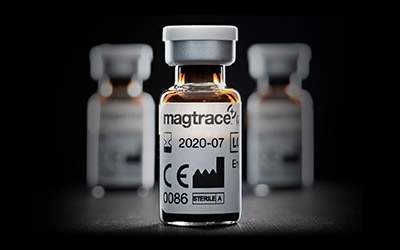Surgical guidance firm Endomag has secured premarket approval (PMA) from the US Food and Drug Administration (FDA) for its breast cancer device, Magtrace.

Image: Endomag has secured FDA approval for Magtrace breast cancer device. Photo: courtesy of Endomagnetics Limited.
Magtrace is said to be the first non-radioactive and dual-tracer for lymphatic mapping in patients with breast cancer undergoing a mastectomy.
Magtrace is a liquid marker developed to follow the route, which cancer cells are expected to take when they spread from the primary tumour.
The new breast cancer device will allow the hospitals to reduce their dependence on radioactive tracers.
It will also enable surgeons to carry out both lesion localisation and sentinel node biopsy with the Sentimag platform.
As per the American Cancer Society, around 266,000 new cases of invasive breast cancer and 65,000 cases of carcinoma in situ will found in the US this year and is expected to double by 2030.
For the affected people, the gold-standard of treatment will be removal of tumor surgically and determine whether the cancer has spread to other parts of the body with a lymphatic mapping procedure.
The procedure involves the use of radioactive drugs and blue dyes, which are limited in their availability and are believed to be painful and uncomfortable for patients.
Magtrace is a non-radioactive alternative, which was developed to enhance the process for both patients and surgeons.
Magtrace can be injected up to a week before surgery as the tracer is optimally sized, enabling to move quickly across the breast. It can also be filtered by the first draining or sentinel lymph nodes.
The collection of Magtrace in the nodes enables the surgeon to specifically target them for removal, without disturbing the remaining nodes in the armpit. It helps to determine the tumor stage and decide on the patient’s best treatment pathway.
Leica Biosystems, the breast health specialist with brands such as Mammotome, Hydromark and Neoprobe, will exclusively distribute Magtrace in North America.
Endomag CEO Eric Mayes said: “This achievement demonstrates our team’s ability to innovate for the benefit of clinicians and their patients.
“The Sentimag platform is the first and only non-radioactive solution approved in the U.S. that can perform lesion localisation and sentinel node biopsy. The addition of Magtrace to the platform offers clinicians greater options and more flexibility when treating their patients and will help transform the way breast cancer is treated in the U.S.”
